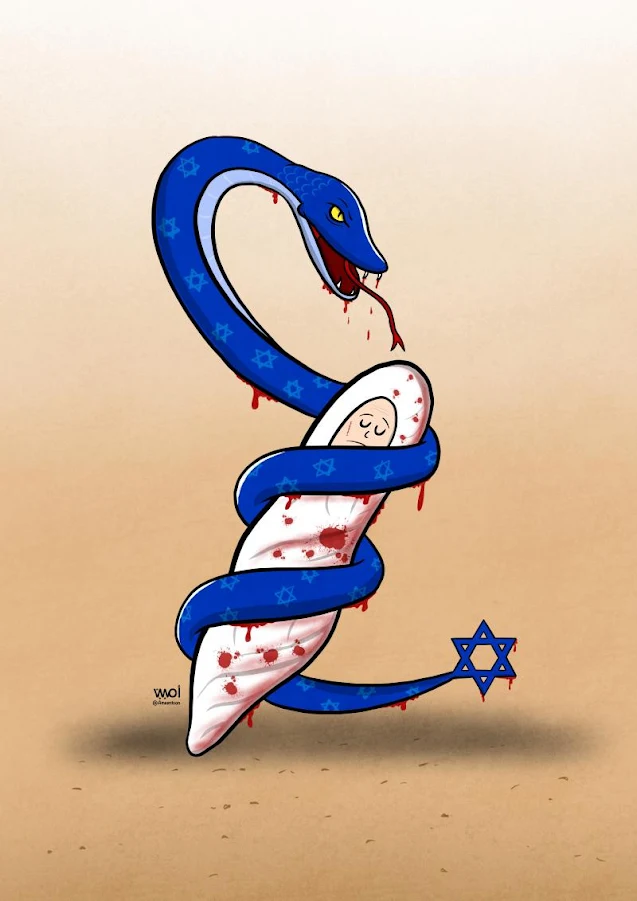One cannot find any moral hand-wringing among the classic Bible commentators when fighting the enemy
ed note–as always, LOTSA goodies in this one that every Gentile with a vested interest in his/her own future survival needs to know.
Firsto, keep in mind that the deranged Hebraic author of this piece, unlike these types–
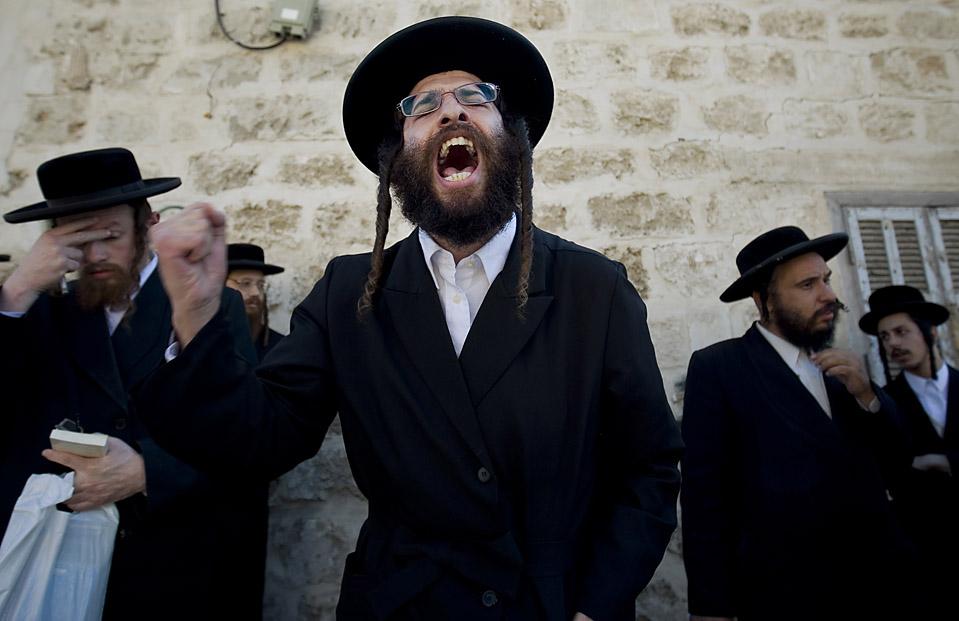
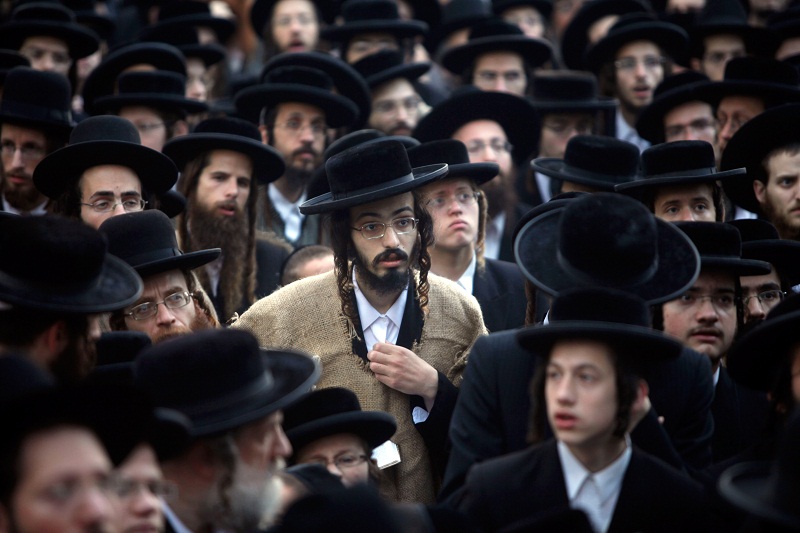
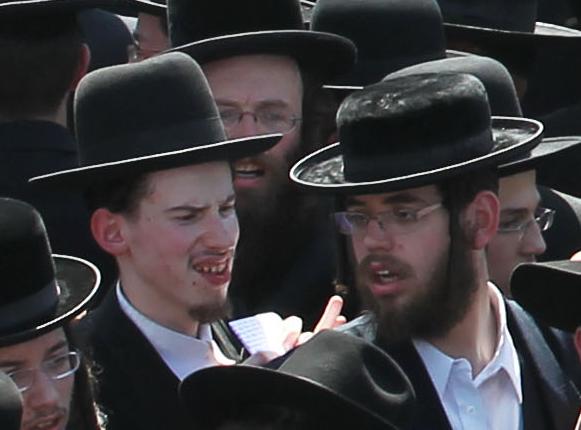
–is educated.
His PhD comes from Yeshiva Uni where his focus was on ‘Jewish Studies’, so he is not by any means a ‘newb’, as they say, and therefore the intellectually-honest researcher wanting to know more about the problems associated with this particular group of people and the ‘state’ they have created in historical Palestine needs to sit down, shut up, and listen.
Now, as far as the piece itself, there are several items of EXTREME importance that need to be noted and understood.
As our deranged Hebraic author explains it, it is not the ‘Talmud’ that drives Jewish behavior in terms of MASS MURDERING GENTILES, but indeed, those commandments and teachings found within the same Torah that Christians reverently refer to as their ‘Old Testament’.
This distinction has to be made due to the fact that there is an entire industry out there made up of various characters–mostly of the Christian pedigree–running their own personal protection racket for Torah Judah-ism by divorcing the Torah (Old Testament) from violent Jewish behavior and assigning all of this to the Talmud.
As our Hebraic PhD author–who, again, majored in Jewish studies–however makes Kristol clear, this is not the case–AT ALL. He bases the thesis of his essay on what has existed FROM THE VERY BEGINNING of the entire Hebraic affair not on the Talmud, but rather, on those books beloved by identity-confused Christians such as Genesis, Exodus, Deuteronomy, Leviticus, etc.
Now, as to the piece itself, nota bene the following–
1. His use of the word ‘bible’, just as Netanyahu did in his recent referencing of ‘Amalek’, was done deliberately and strategically in order to suck these types–
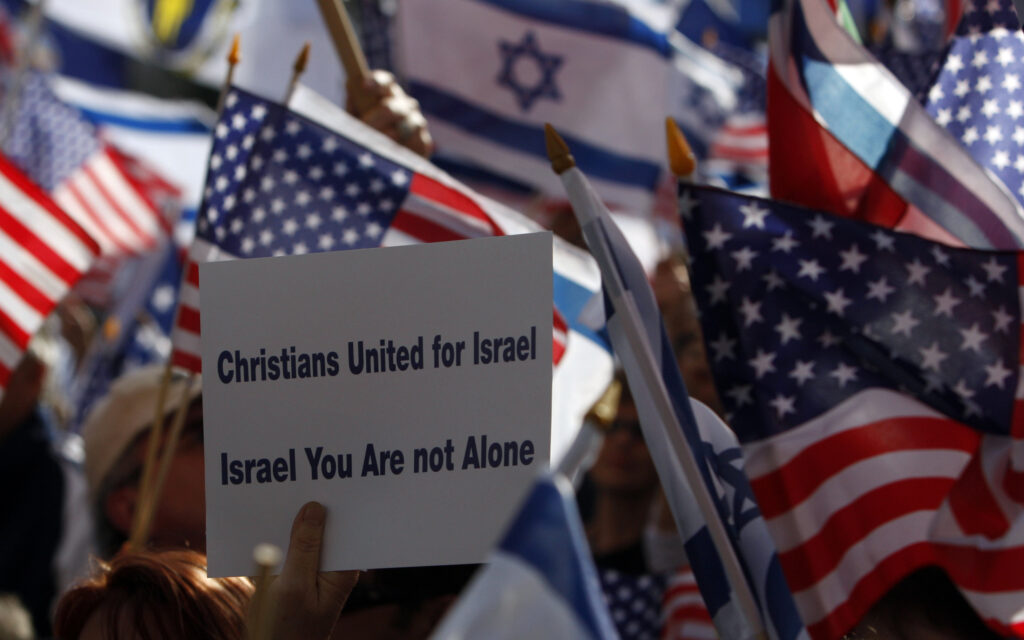
–Whose political and monetary support for the entire ‘Jewish State’ thing must be maintained if this dangerous terrorist enclave/nest of vipers is to remain alive, into his magic spell/web of deceit.
Given that the word ‘bible’ comes from the Greek word ‘biblia’, and given the fact that the followers of Judah-ism HATE the Greeks and state as much every year at their stupid celebration of H’Nookah, there is no reason whatsoever for any Jew to be using that word except as part of the black magic they utilize in seducing stupid Gentiles into supporting their plans and machinations in raising up their Moschiac (AntiChrist) as supreme ruler of all world affairs.
Nexto, pay close attention to the basis of this argument concerning there being ‘no civilians’ in any wars that the Jews fight–it is all TORAH (Old Testament) based, and therefore anyone writing any silly articles, essays, or rendering commentary on any podcasts or programs selling the false gospel that ‘It’s the Talmud, Stupid’ needs to be seen and rejected for the intellectual frauds that they are.
And finalmente, ladies and Gentilemen, note what is/has been FROM THE VERY BEGINNING OF THE ENTIRE HEBRAIC AFFAIR the absolute absence of morality, compassion or conscience on the part of an otherwise healthy brain that has been exposed to the toxic and radioactive properties of Torah Judah-ism and the manner in which people and indeed ENTIRE NATIONS are transformed from humans created in the image of God into crocodiles walking on 2 legs.
Dr. Elliot Resnick for Israel National News
‘We don’t target civilians,’ Israel’s leaders announce with great vigor.
Indeed, they don’t. But they have no moral obligation to pursue this policy. Indeed, they arguably have a moral obligation to abandon it as it often endangers the lives of Israeli soldiers.
Halakhic expert Rabbi Chaim Jachter writes, ‘Rav Shaul Yisraeli [who served on Israel’s Supreme Rabbinical Court] notes that ‘We do not find the obligation in war to distinguish between blood and blood (combatants and non-combatants). In the course of war, when laying siege to a city and the like, there is no obligation to make such distinctions.’
True, the Sifri requires that we leave an escape route when besieging a city, but the Ramban notes that this rule only applies in optional wars and doesn’t apply in obligatory wars such as the one we’re now fighting in Gaza.
In Contemporary Halakhic Problems (volume 3), prominent posek Rabbi J. David Bleich writes, ‘Not only does one search in vain for a ruling prohibiting military activity likely to result in the death of civilians, but to this writer’s knowledge, there exists no discussion in classical rabbinic sources that takes cognizance of the likelihood of causing civilian casualties in the course of hostilities legitimately undertaken as posing a halakhic or moral problem.’
Likewise, the Torah contains no record of Bnei Yisrael risking their lives to save those of enemy civilians.
On the contrary, it records them fighting fiercely to achieve victory, and in doing so, they often targeted non-combatants, even if we leave aside their wars of extermination against Amalek and the seven Canaanite nations, which were waged on G-d’s explicit command.
When our ancestors fought against Midian, for example, they killed every man, every boy, and practically every woman. One cannot find any moral hand-wringing over this massacre among the classic Bible commentators.
Another example: In his last act on earth, the great Samson – his eyes gouged out by the enemy – committed what today would be considered a war crime; he killed ‘approximately 3,000 [Philistine] men and women’ as vengeance ‘for one of [his] two eyes.’ This story is recorded without a hint of condemnation from the author of the Book of Judges or the classic Bible commentators.
Our ancestors weren’t even necessarily kind to each other in war. When 11 tribes joined battle against the tribe of Binyamin for the horrific rape and murder of a Gibeahite concubine, they killed both men and women. When they learned afterward that the men of Yavesh Gilad didn’t join the national assembly that preceded the war, the tribes massacred them too – and their wives.
What did the women do wrong? The Ho’il Moshe (1821-1898) explains: ‘They should have tried convincing their husbands to go to the assembly.’
The Migdal Oz (1287-1330) provides a different answer. In explaining why the children and women of an apostate city deserve to die according to the Rambam, he invokes the destruction of Yavesh Gilad and Korach’s assembly and argues that the women and children die because ‘they’re precious to the adults.’ The Migdal Oz also suggests that children ’cause’ their parents to dwell where they do, which presumably makes them at least indirectly guilty.
If not for the children, the Migdal Oz seems to be arguing, their parents wouldn’t have settled down and built an idolatrous society.
Perhaps the greatest example though of our ancestors killing ‘innocent civilians’ is Levi and Shimon’s massacre of the men of Schechem. One man kidnapped Dinah. Why, then, did Levi and Shimon target the rest of the male population? The Rambam answers that every society is obligated to ensure that justice reigns in its midst. Thus, Shechem’s civilians should have punished their prince for kidnapping and raping a foreigner. Since they didn’t do so, they deserved to die. Are we not living in a parallel situation today?
The Maharal’s answer is even more ‘radical.’ He explains, ‘Even though only one man sinned, he belonged to a larger nation…and therefore Levi and Shimon were permitted to take vengeance against all of them.
The same is true of all the other wars the Israelites were in. For instance, G-d told Moses, ‘Vex the Midianites and smite them’ (Numbers 25:17). It makes no difference that many individual Midianites didn’t harm Israel. The nation they belonged to did…. And such is the case for all wars.’
War by its very nature is collective. It pits one society against another. Israel against Midian, Russia against Germany, America against Japan.
It also possesses its own set of moral rules. The Netziv writes that the Torah’s first interdiction against murder speaks of killing one’s ‘brother.’
Why ‘brother’? Because G-d only holds us responsible for spilling blood during a time of brotherhood – i.e., peacetime. ‘During war, a ‘time to hate’ however, it’s a time to kill and there is no punishment for spilling blood whatsoever. For that’s how the world was established.’
In a certain sense, war is terrible. That’s why, Napoleon said, it should be waged ‘with energy and severity; it is the only means of making it shorter and consequently less deplorable for mankind.’
But when Israel does fight, it should never forget that ‘the blood of the Israeli soldier is redder than the blood of the Arab whose brethren initiated violence against Israel,’ writes Rabbi Jachter, ‘just as the blood of the American soldier was redder than the blood of Japanese civilians during World War Two.’
Let me conclude with one more quote from Rabbi Jachter:
‘Rav Avraham Shapira (Techumin 4:182) and Rav Dov Lior (Techumin 4:186)…strongly disagree [with the position that Israel should take into consideration civilian casualties when making war plans]. Rav Lior writes, ‘In times of war, there surely exists firm Halakhic basis for any action done in order to insure that not even one soldier should be, G-d forbid, harmed.’
Rav [Hershel] Schachter [rosh kollel at Yeshiva University] told me…that he agrees with Rav Shapira and Rav Lior. In fact, he argues that Israel acted immorally when it risked its soldiers in Jenin and Lebanon in order to reduce civilian casualties. Rav Bleich…also told me that he agrees with Rav Shapira and Rav Lior. He agrees with Rav Schachter that it is forbidden to risk Israeli lives in order to save Arab civilians.’
